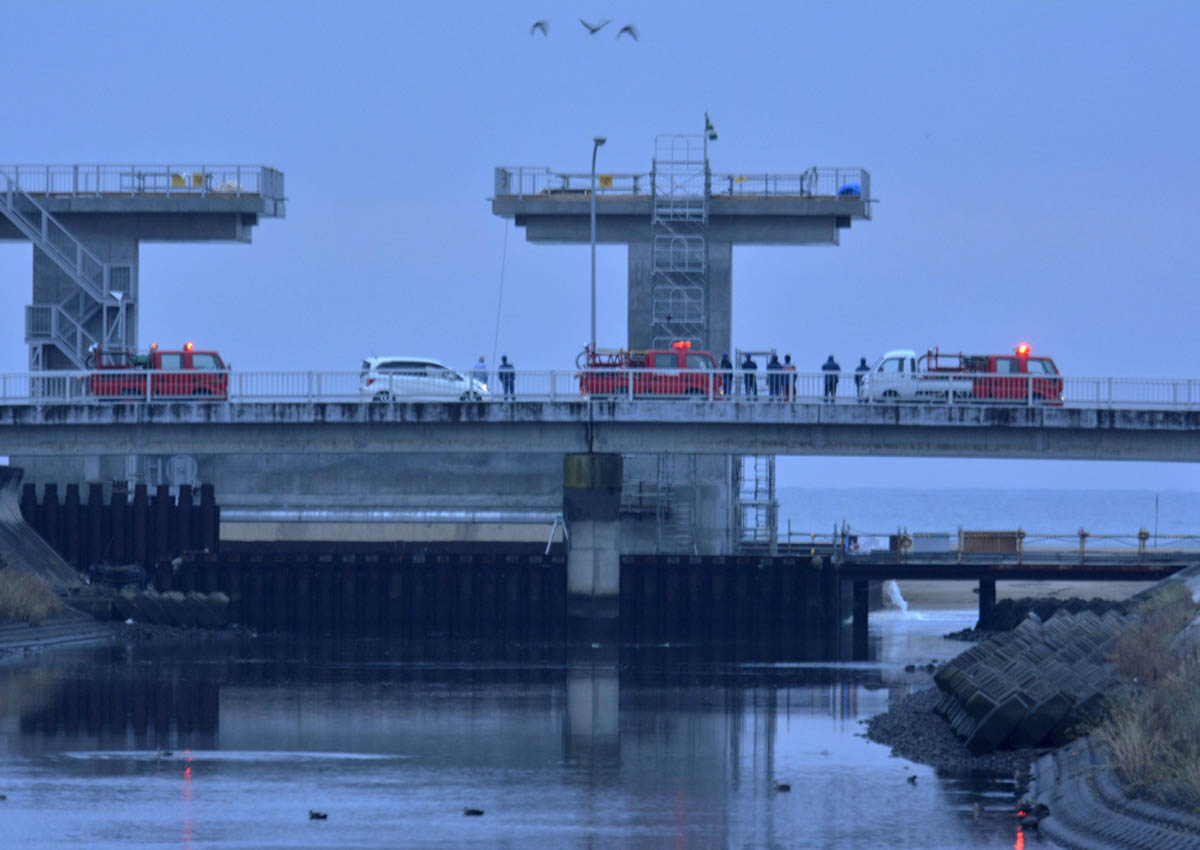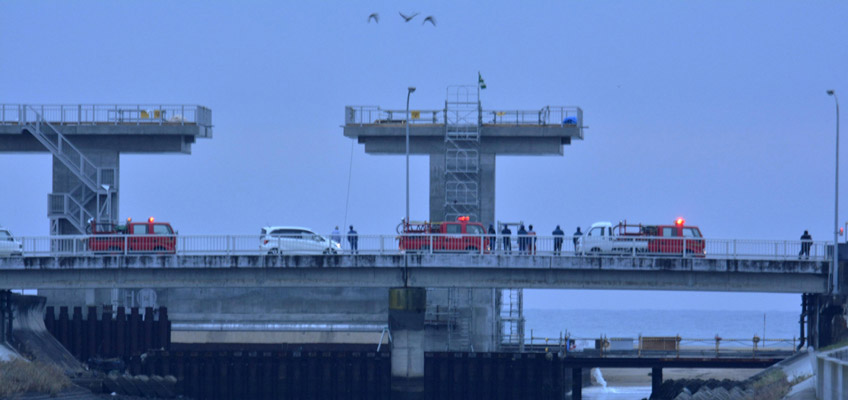TOKYO – A powerful earthquake rocked northern Japan on Tuesday, the Japan Meteorological Agency said, generating a tsunami that hit the same northern Pacific coast devastated by a massive quake, tsunami and nuclear disaster in 2011.
The earthquake, which was felt in Tokyo, had a preliminary magnitude of 7.3 and was centred off the coast of Fukushima prefecture at a depth of about 10 km (6 miles), the agency said.
A tsunami of up to 1 metre (3 feet) had been observed around Fukushima following the quake which struck at 5:59 a.m. (2059 GMT), public broadcaster NHK said, after warning of waves of up to 3 metres (10 feet) has been issued.
All nuclear plants on the coast threatened by the tsunami are shutdown in the wake of the March 2011 disaster, which knocked out Tokyo Electric Power Co’s Fukushima Daiichi nuclear plant, spilling radiation into the air and sea.
A spokeswoman for Tokyo Electric Power, known as Tepco, said the cooling system for a storage pool for spent nuclear fuel at reactor at its Fukushima Daini Plant had been halted, but a spokesman said the cooling system had restarted soon after.
No other damage from the quake has been confirmed at any of its power plants, although there have been blackouts in some areas, the spokeswoman added.
Only two reactors are operating in Japan, both in the southwest of the country. Even when in shutdown nuclear plants need cooling systems operating to keep spent fuel cool.
Tohoku Electric Power Co said there was no damage to its Onagawa nuclear plant, while the Kyodo news agency reported there was no irregularities at the Tokai Daini nuclear plant in Ibaraki Prefecture.
Television footage showed ships moving out to sea from Fukushima harbours as tsunami warning signals wailed.
One woman suffered cuts to her head from falling dishes, Kyodo news agency reported, citing fire department officials.
Earthquakes are common in Japan, one of the world’s most seismically active areas. Japan accounts for about 20 per cent of the world’s earthquakes of magnitude 6 or greater.
The March 11, 2011, quake was magnitude 9, the strongest quake in Japan on record. The massive tsunami it triggered caused world’s worst nuclear crisis since Chernobyl a quarter of a century earlier.
The US Geological Survey measured Tuesday’s quake at magnitude 6.9, down from an initial 7.3.
An Iwaki city fire dept official said there was smoke or fire at Kureha’s research centre in a petrochemical complex in Iwaki city at 6:17 a.m., but it was extinguished at 6:40 a.m. Other details were not clear, he said, adding that no other major damage in the city has been reported at the moment.
One hotel in Ofunato, badly hit by the 2011 quake, initially told guests to stay in the facility, but later bussed them to higher ground.










